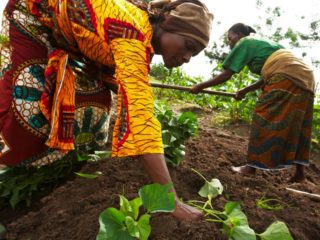IITA’s innovations can transform agric sector, says NABG
Nigeria Agribusiness Group (NABG) has said the research and
innovative solutions being developed at the International Institute of Tropical
Agriculture (IITA) could transform Nigeria’s agricultural narrative.
Emmanuel Ijewere, Vice President, NABG, said this when he led
a delegation from the group on a visit to IITA to explore areas of possible
collaboration. NABG is widely regarded as Nigeria’s agricultural think-tank. The
group comprises eminent players in the agricultural value chain.
The team was excited over the many innovations already
developed by IITA ranging from improved seeds that could more than double
farmers’ productivity, to technologies that control weeds and double the yield
of cassava, to simple processing machines that add value to crops such as
cowpea, cassava, and yam.
Other technologies such as inoculum production which raises
the productivity of legumes such as soybean by about 20 percent, and aflasafe—a
biological control product for managing aflatoxins—were also explored. The
semi-autotrophic hydroponics which is being used to produce thousands of clean
seeds of clonal crops such as cassava and yam, and the yam aeroponics—a system
of growing clean seed yam in the air—were also well received by the group.
After a series of presentations by IITA researchers and a
tour of the 1000-hectare research facility, a puzzled Ijewere remarked that
“The visit to IITA is an eye opener. Yes, we knew that IITA was doing some
things, but little did we realize the extent and depth of what they have done…
how far they have gone, and how relevant they have become to Nigeria’s
agriculture future.”
Ijewere said the NABG would work with IITA to see how the
research outputs of the Institute in the last 50 years could be ‘translated to
money in the bank for resource-poor farmers.’
Located in Ibadan, the Oyo State capital, IITA was stablished
50 years ago with the aim of providing solutions to constraints that plague
Africa’s agriculture and development.




Comments
Post a Comment